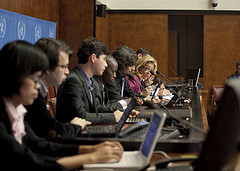The question of whether the Internet The World-wide-web Niche - The global economy has been severely impacted. Millions of people have lost their jobs, many are losing their homes, and retirement portfolios are disappearing at an alarming rate. What happens in the World Wide Web? We often discuss the global financial tsunami, an economic crisis on a scale that rivals the Great Depression of the… plays a crucial role in globalization is highly controversial and debatable. Globalization, often described as “the integration of financial capital markets and culture around the world,” is seen as a phenomenon with both negative and positive consequences. The rapid growth in the globalization of countries and regions is believed to be significantly facilitated by the swift exchange of information and knowledge that the Internet provides.
However, while the sharing of knowledge is theoretically beneficial for human development, the Internet also offers a channel for cultural homogenization and the creation of an uneven playing field for developing countries. This argument is clearly observed in case studies of Asian countries, particularly in Thailand. As the use of the Internet and the growth of businesses based on the Internet have increased, the question arises whether this progress in communication and knowledge has positively impacted people in developing countries or has it widened the gap between the rich and the poor?
The Internet is a unique form of media. It has the power to reach many people, but its impact is influenced by factors such as economic status, technological skills, education, and interest in the medium. The Internet is not always accessible or feasible for everyone, and in a country like Thailand, it is evident that the less fortunate, especially the uneducated and those from remote areas, have been marginalized. For example, 70% of Thailand’s Internet users are concentrated in the Bangkok Metropolitan Area (Hongladaron, 2003), and only 4 to 5% of rural Thailand has access to the Internet.
In some of his articles, scholar Hongladaron has also addressed the marginalization of remote Thai populations. Hongladaron acknowledges the benefits of the Internet but confirms through his research that since these benefits are only available to the wealthy, the Internet acts as a discriminatory form of media for the poor. However, Hongladaron also contends that the Internet does not homogenize cultures. He claims that “the relationship between computer-mediated communication technologies and local cultures is characterized neither by a homogenizing effect nor by the erection of barriers separating one culture from another” (Hongladaron, 1998).
Hongladaron concluded that the Internet does homogenize culture, but only to a limited extent. With scarce information on how Thai people interact on the Internet or perceive it as a medium, it is challenging to determine whether the overall impact of the Internet is homogenizing. However, it is evident that the Internet does marginalize those who cannot use this medium.
As the popularity of the Internet grows, the debate over cultural homogenization intensifies. Some scholars argue that since the Internet benefits the wealthy and educated, those who can use the Internet typically have a certain level of intellectual capacity, and therefore, the homogenization of culture only applies to a limited extent. For instance, the Bengali tribes in Bangladesh practice sustainable living and do not value the information offered on the Internet. They view the Internet as a poor form of communication since personal contact is not established. Members of the Bengali tribe live according to Hindu religious principles, and everyone in the tribe has a specific role.
Thus, the tribe as a whole is self-sufficient, and its members do not feel the need to adopt the values or the “teachings” of the Internet. Additionally, indigenous Tibetans are another example of people who are not reached by the knowledge the Internet offers. Due to their belief in the Buddhist principle of Right Livelihood, they believe in living in harmony with their surrounding environment. Members of these indigenous communities do not view the Internet as essential, as they would argue that a computer is a luxury and not a necessity. Therefore, when considering the issue of whether the Internet is a tool for the homogenization of culture, some might say ‘yes’ due to developing Asian countries becoming westernized because of propaganda on the Internet, while others may argue that only Asian communities that have already been westernized use the Internet. These scholars might assert that some Asian communities, especially those in indigenous tribal communities, would not use the Internet due to their cultural paradigm, thus the Internet community is primarily focused on just one group of people sharing a common belief: “that the Internet is a valuable tool.”
In conclusion, it is undeniable that the Internet is a place for “information sharing,” and this sharing of knowledge may lead to certain ideologies becoming more prominent and altering the thoughts and practices of other cultures. However, many would argue that while this is inevitable on the Internet, the Internet cannot dictate an individual’s lifestyle and values. Therefore, the Internet can only present another person’s discourse but cannot force a person’s ideology to change.
Manuel Marino is a seasoned Senior Producer, Music Composer, and Artist with over a decade of experience. He specializes in branded entertainment across various mediums, including video games, films, and advertising campaigns. With 20+ years as a game music composer, Manuel has worked on numerous platforms, creating diverse orchestral soundtracks. HIRE ME


 Manuel is a passionate, driven, and techsavvy AV technician,
Manuel is a passionate, driven, and techsavvy AV technician, 




